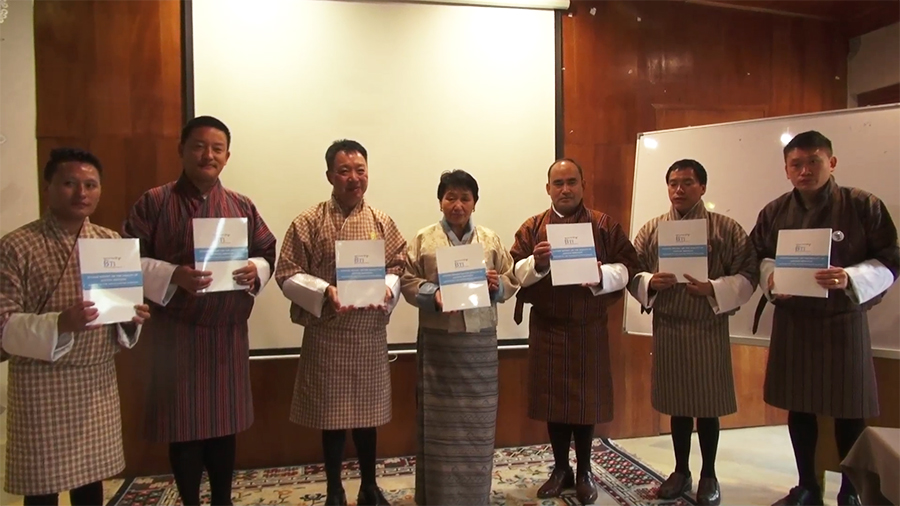
The Bhutan Transparency Initiative recommends the justice institutions in the country to establish Standard Operating Procedure or SOP, institute an independent grievance redressal organisation and improve access to justice among others. These were found out after the CSO studied the quality of services provided by various justice institutions in the country. The report called as the Citizen Report on Quality of Justice Services, a first of its kind was launched last week in Paro.
During the study, close to 1,900 citizens from various backgrounds were interviewed. The study assessed the quality of services provided by the courts, the Anti-Corruption Commission, the police and the Office of the Attorney General.
Other institutions studied include the Bhutan National Legal Institute, the Bar Council of Bhutan and the Bhutan Alternative Dispute Resolution Centre.
“We were able to come up with specific recommendations as well as general recommendations for each of the justice institutions. The most important recommendation is that people are not aware of most of the services provided by justice-providing institutions. Therefore, there is an urgent need to create awareness of various services provided by the seven justice institutions being studied,” said Rinzin Rinzin (PhD) the Executive Director of the Bhutan Transparency Initiative.
The study points out that the seven institutions studied need to come up with respective SOPs which are accessible to the people. It also found the need to establish an independent grievance redressal organisation to address people’s grievances.
Besides strengthening legal aid to the people, the study recommends that justice institutions explore means to enhance access to justice services by all citizens regardless of their location or socio-economic status.
“It is very important that the quality provided by the justice institutions are up to the mark. It should not be for the sake of providing but provided from the heart. Therefore, this is important because every citizen must have access to every service provided by these institutions if they need the services,” added the Executive Director.
According to the report, among the seven justice-providing institutions, the Royal Bhutan Police provided the best services followed by the Anti-Corruption Commission, the Bhutan National Legal Institute and the Royal Court of Justice respectively.
On the other hand, citizens complained about the availability of Bhutan Alternative Dispute Resolution Centre’s services to its paid members only. The study also shows challenges while availing OAG’s services such as unfair prosecution, subjective review of charge sheeted complaints and lack of awareness of the services provided by the constitutional body.
Participants from the judiciary, the Bar Council of Bhutan, the Bhutan National Legal Institute, media and various CSOs participated in the launch event.
Namgay Wangchuk, Paro
Edited by Kipchu










